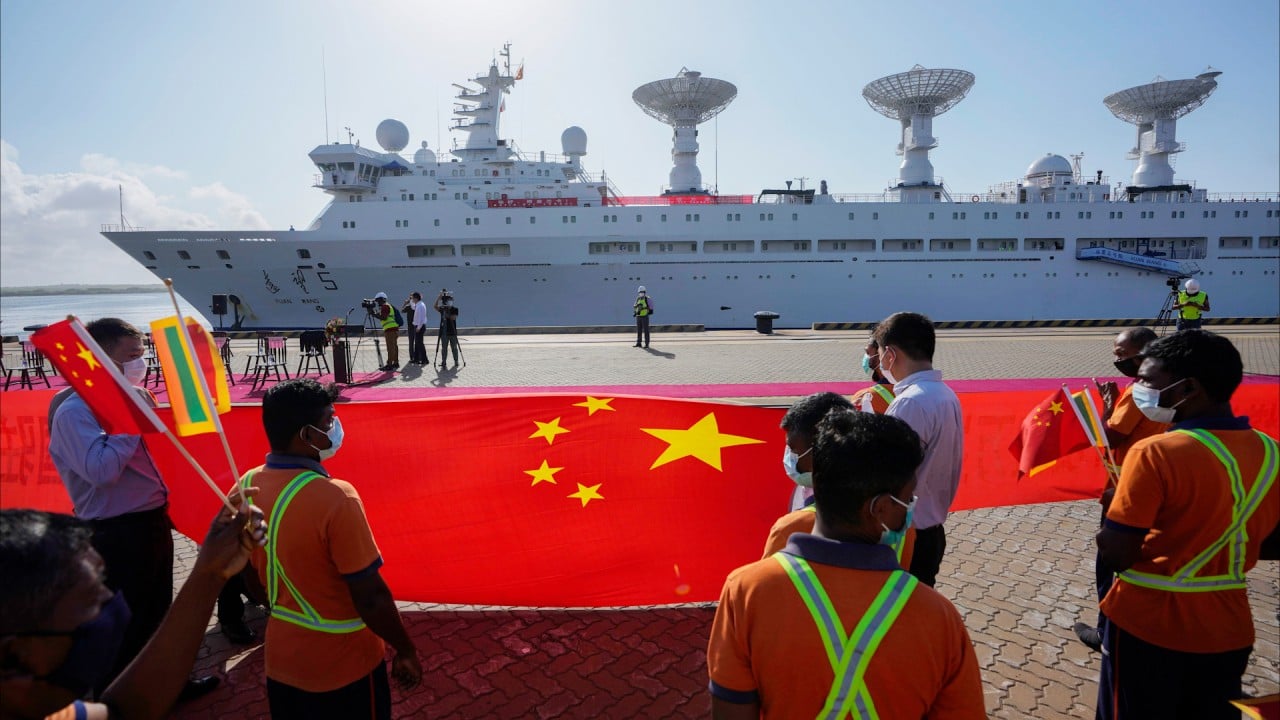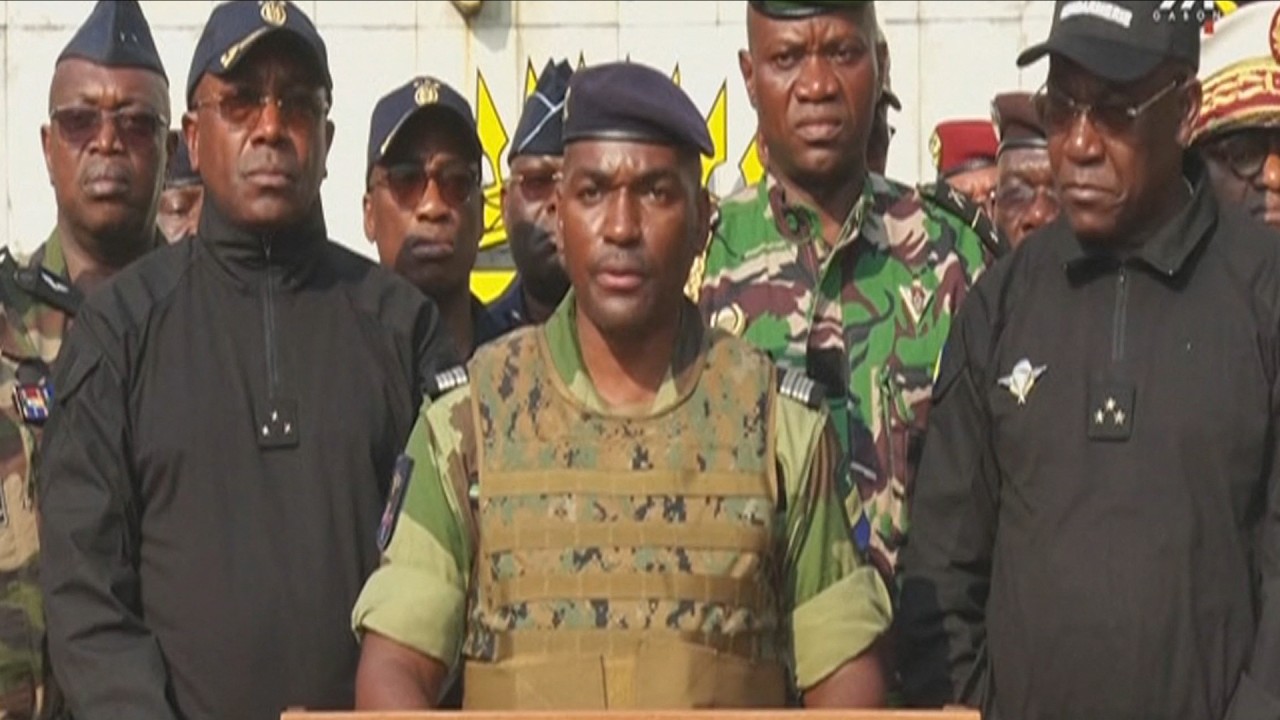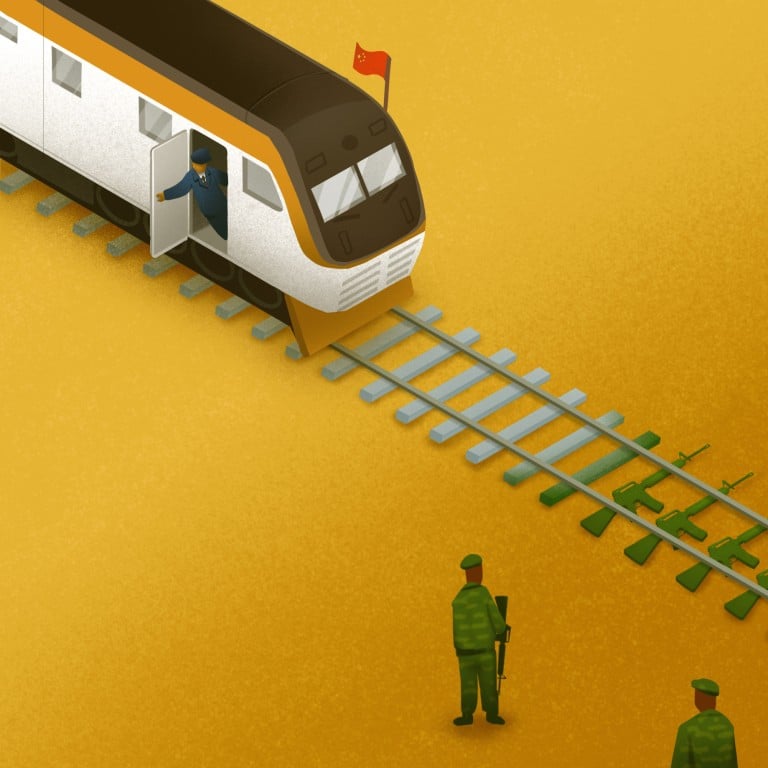
As coups threaten African stability, China struggles to make headway with belt and road interests
- With military coups leaving African nations in a state of flux, the brakes have been put on China’s multibillion-dollar trade and investments
- China has been left having to adapt and adjust to the new political realities as it tries to keep its belt and road schemes moving forward
On September 16, a delegation led by Liu Yuxi, special representative of the Chinese government on African Affairs, held talks with the military leaders in Niger as China made sure it was in the new government’s good books.
Liu said China aims to “continue and develop” the cooperation with Niger and “deepen the friendship between the Chinese people and the Nigerien people”, the Nigerien Press Agency reported.
Liu’s meeting came soon after Chinese ambassador to Niger Jiang Feng also held talks with the military leaders and offered China’s so-called “good offices” to find a solution to the crisis.
“China intends to play the … role of mediator, with full respect for the regional countries,” Jiang said in early September.
Although Niger, a former French colony, is among the world’s poorest nations, it is rich in uranium, which has been fuelling France’s nuclear power.
But China has been angling for uranium to ramp-up its own nuclear power generation, and has turned to the West African nation.
Just as in other countries in Africa, the coup appears to have put the brakes on China’s multibillion-dollar trade and investment scheme.
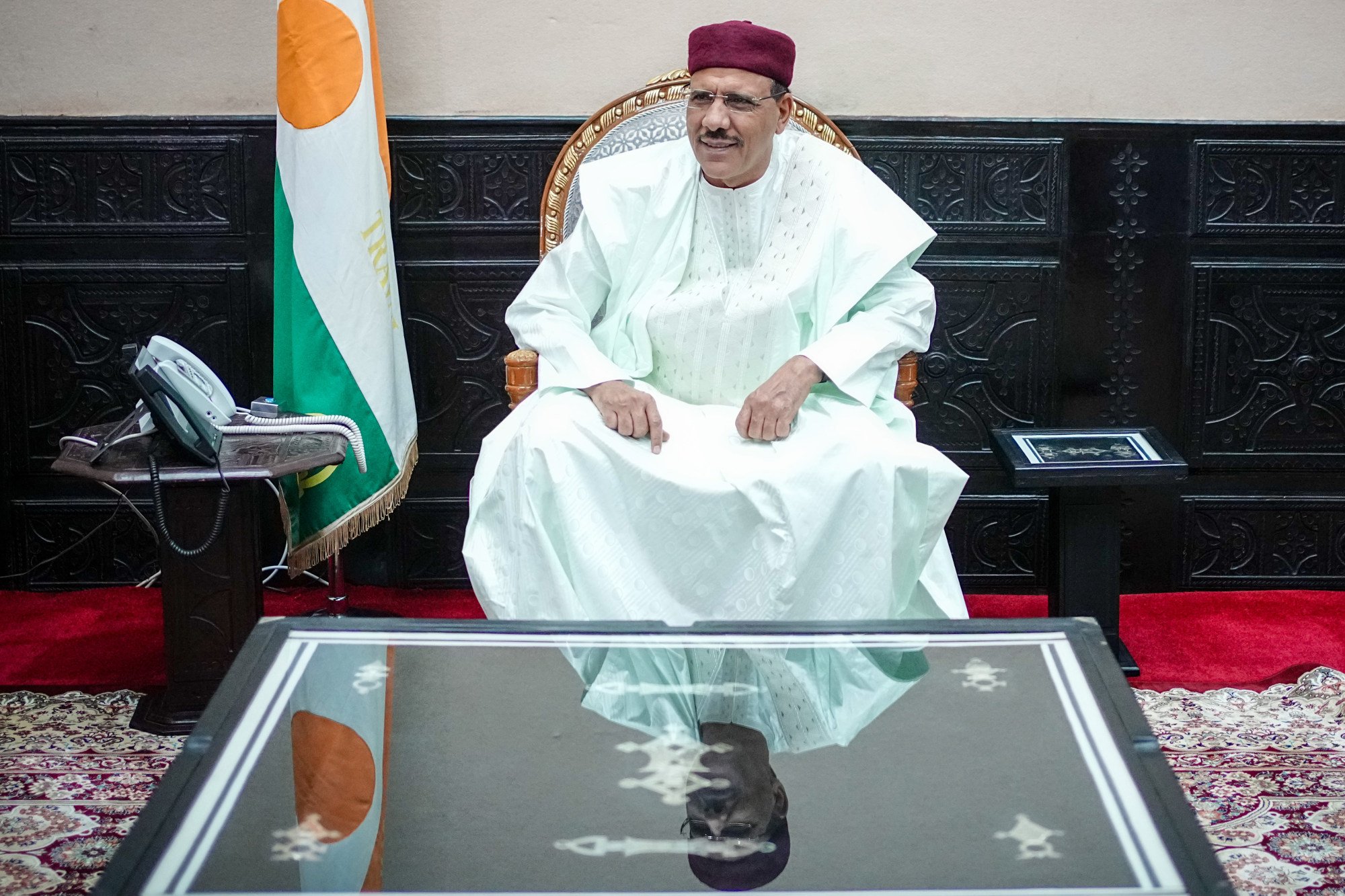
China Gezhouba Group suspended the construction of the US$800 million Kandadji Hydroelectric Dam, 180km (112 miles) northwest of Niger capital Niamey, following the coup, Reuters reported last month.
Paul Nantulya, a China-Africa specialist at the Africa Centre for Strategic Studies in Washington, said that when the Chinese ambassador in Niger met the military leaders, the diplomat told them China would support projects that the military junta prioritised as being important for Niger.
“China is manoeuvring to see that it is on safe ground [with] the current military government because previously the Chinese government expressed support for Mohamed Bazoum,” Nantulya said.
At UN, Guinea’s junta leader defends coups in Africa and rebuffs the West
China is keen to extend its belt and road projects to most of these countries, such as Mali, a major gold exporter, and Sudan and Chad where China has investments in the petroleum industry.
Dr John Calabrese, a senior fellow at the Middle East Institute, said China is not trying to shape the political context in Africa, but it is trying to adapt to changes there.
“China prioritises stability in its partners, regardless of their political ideologies and whether dressed in civilian or military garb. But in instances where such regimes fall, China’s first instinct is to adjust to the new reality on the ground,” Calabrese said.
A decade before the Belt and Road Initiative was launched, when Africa was beset by a series of coups and coup attempts such as in Niger, Mali and Guinea-Bissau – countries with which China had established strong ties. Calabrese said Beijing reacted with restraint to such developments and made no condemnations. It did not interfere or abandon its state-centric approach.
He said Beijing’s primary concern and sole demand was that the transitional governments act to protect Chinese personnel and infrastructure, which was followed by the provision of various forms and amounts of aid – a pattern that might well repeat itself.
However, Calabrese said although China has invested heavily in Africa since the Belt and Road Initiative was launched “I remain to be convinced that the coups that have taken place in recent months directly threaten Chinese interests any more than they did a decade ago”.
China has not been a victim. Even as the junta in Niger tries to push the French out, we have not seen any large-scale agitation against the Chinese.
He added: “The ‘new’ cohort of African strongmen have yet to display any intention of acting against Chinese interests – and are unlikely to.”
“Chinese negotiations with the UN in many of these missions also allows the Chinese contingency to protect critical infrastructure. This is the case in Mali and South Sudan where China has major investments in oil infrastructure,” Nantulya said.
Adhere Cavince, an international relations analyst based in Nairobi, said China’s foreign policy is not determined by internal conditions of partner countries. Their policy of non-interference allows them to move through the turbulence without necessarily being drawn into a conflict, Cavince said.
“China is the only major country that has proven quite interested in going into fragile situations to do some infrastructure projects in Africa.”
Cavince said, to a major extent, Chinese contractors, just like any other, will be very careful on how to navigate the turbulence of a conflict.
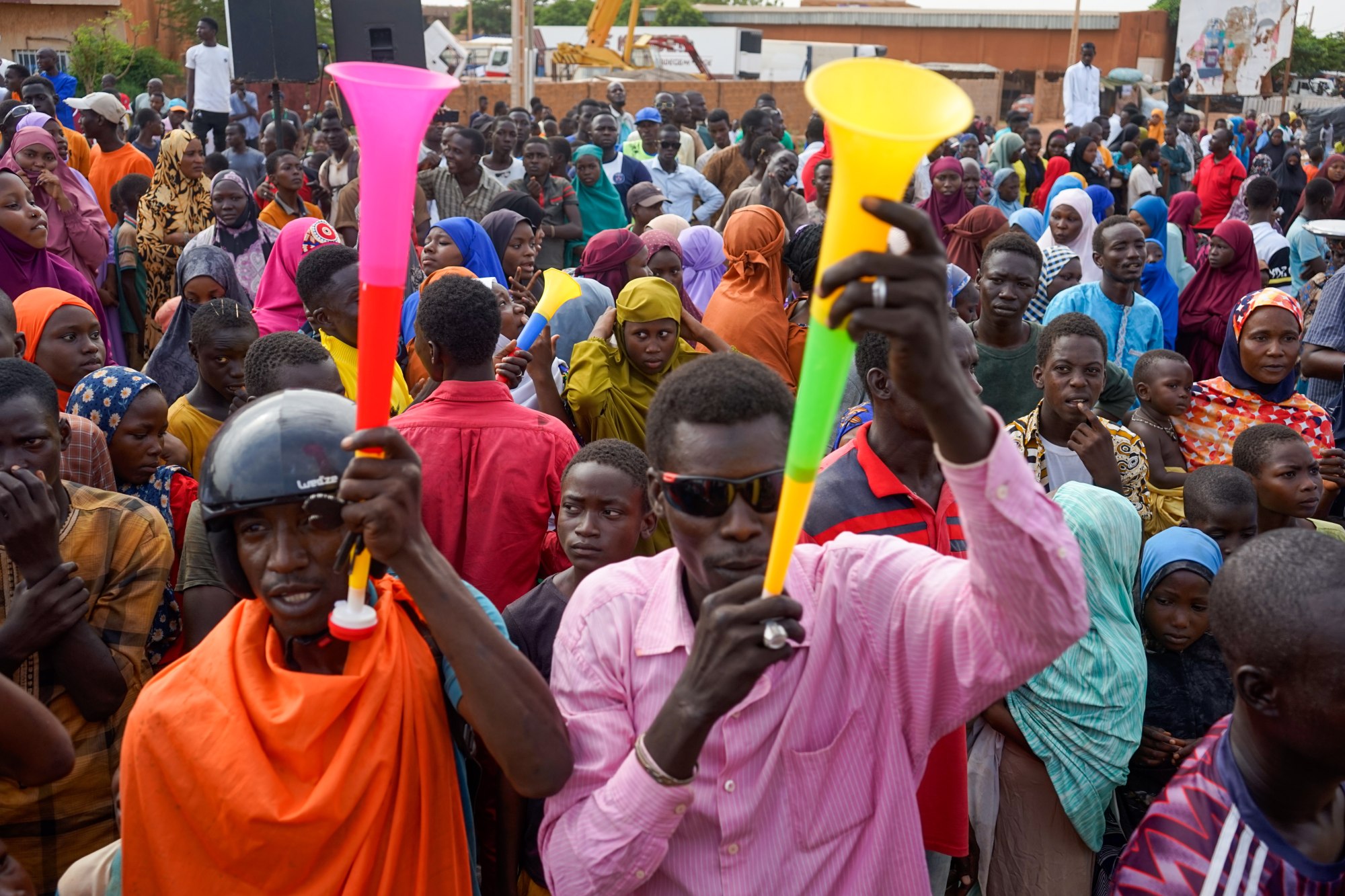
He said what we have been witnessing in West Africa and parts of Central Africa, has largely been the challenge taken to the doorstep of Western countries led by France.
“China has not been a victim. Even as the junta in Niger tries to push the French out, we have not seen any large-scale agitation against the Chinese. The power brokers in these countries understand that,” Cavince said.
Moreover, in this transitional period, Calabrese said, China’s bargaining power might prove to have increased – and so might its appetite to assume some level of risk.
“China will undoubtedly seek to build positive relations with the transitional governments, whether civilian or military. Beijing will likely proceed very cautiously before making any new, large financial commitments,” Calabrese said.
“The threat of criminal and political violence against Chinese citizens in Africa is likely to intensify,” Arduino said.
He said even before the devastating effects of the pandemic, the Belt and Road Initiative was under significant pressure to steer clear of underperforming large-scale projects.
“With the instability and unpredictability in Africa and a gloomy economic outlook at home, Beijing is compelled to steer clear of fresh investments in high-risk regions and fine-tune its existing project pipeline,” Arduino said.
Nevertheless, Nantulya said most belt and road projects continue to be in unstable and fragile contexts. Those environments might be very difficult to operate in, but the profits are huge.
“China has always operated a model of high risk, high reward. It is deeply ingrained in Chinese economic and financial behaviour that the higher the risk, the higher the reward,” Nantulya said.
He added that in a fragile environment, it is easier to build and to sustain political ties.
“You don’t have to worry about oversight, you don’t have to worry about parliament and opposition and the media. These are things that China cares about,” Nantulya said.
“But when you are in a chaotic country, like in Central African Republic, Somalia and eastern Democratic Republic of the Congo, you don’t have to worry about those constraints. It is easier to build political influence.”


